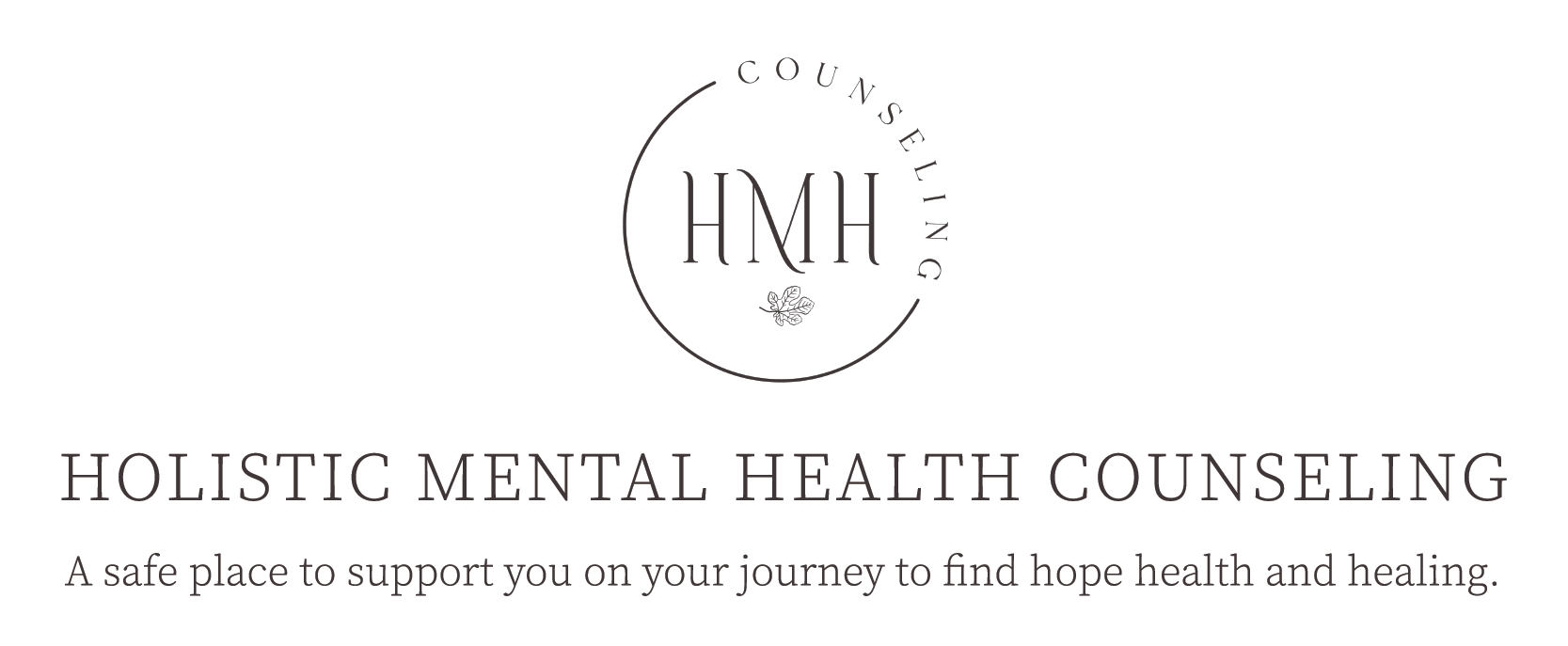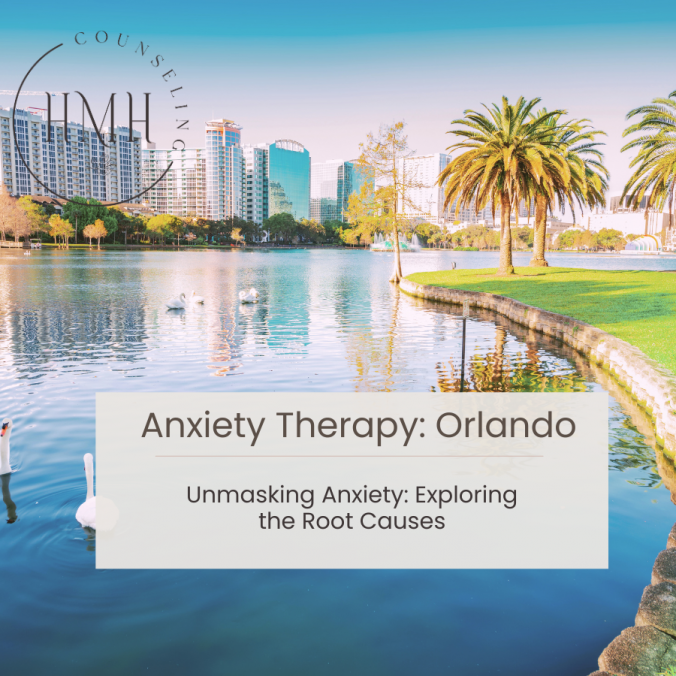March 4 • Written by: Jennifer Sierra, LMHC
In today’s fast-paced world, rising anxiety levels have become a common issue for many. Whether it’s the temporary rush of nerves before a presentation or the ongoing stress from major life choices, anxiety affects us all in various ways. But digging into what causes our anxiety can lead to meaningful self-discovery and healing. At HMH Counseling in Orlando, FL, led by Jennifer Sierra, LMHC, we aim to peel back the layers of your anxiety, understanding its roots for lasting Anxiety relief and change. Our strategy isn’t just about managing anxiety symptoms but unraveling its causes for mental health therapy tailored to your personal story.
Understanding Anxiety
Anxiety serves as our body’s alert system to danger, readying us for action. But when it misfires, it evolves from a survival tool into a persistent disruptor. With anxiety disorders topping the list of mental health challenges globally, it’s clear that unraveling these issues is more crucial than ever.
The Role of Early Experiences 
Our formative years play a huge part in shaping how we handle emotions, influenced by our cultural background. Instead of viewing these influences as negative, it’s important to understand the strength and resilience they can foster, even in the face of challenges like family issues or bullying.
Unexpected traumas or ongoing stresses can trigger or worsen anxiety. Recognizing the cultural backdrop of these experiences allows for a more empathetic approach to therapy. HMH Counseling focuses on understanding trauma through a culturally aware lens. We understand that experiences and influences vary significantly across different cultures, and our therapy sessions are designed to offer insights and anxiety management tools that are culturally thoughtful and applicable.
Unhelpful Thought Patterns
Sometimes, the way we think about ourselves and the world can influence our emotions. One way this happens is when we assume the worst, a thing called catastrophizing. Say you forget to send an important email at work. If you start thinking this slip-up will get you fired, your mind has created a huge disaster out of a small mistake, and that ramps up your anxiety.
Another twist in thinking is making a mountain out of a molehill, or overgeneralization. For example, if you miss the bus, you might think to yourself, “I always mess up. I’m a total failure.” This isn’t just feeling bad about one thing; it’s letting one bad moment make you feel like you can never do anything right, and that brings on more anxiety.
At HMH Counseling, we work to identify and improve these kinds of unhelpful thoughts with things like Cognitive Behavioral Therapy (CBT). We look at how these thoughts are changing your feelings and teach you ways to think more clearly and helpfully, which is a big part of getting a handle on anxiety.
Have you noticed similar patterns in your thoughts? How do they affect your feelings and behavior?
Fear of Feelings
Have you ever tried to push away those uncomfortable emotions, thinking they’d just go away? It turns out they’re kind of like that friend who talks louder when you ignore them, making your anxiety levels shoot up. Or maybe, you’re sitting there puzzled, thinking, “Feelings? What are those?” You’re not alone if figuring out your own emotions feels like trying to understand a foreign language you never learned.
Therapy is like having a GPS for navigating through that confusing emotional terrain. It’s a place where you don’t have to be afraid of opening up or facing those fears head-on. It’s about learning the lay of the land of your emotions, safely.
I’ve seen it time and time again with those who take that brave step. They start off unsure if they can even allow themselves to feel, but then something amazing happens. They begin to notice and cherish the good feelings more intensely. It’s like they’ve been given permission to enjoy life in vibrant color, rather than in shades of gray.
And it’s not just about the good feelings. Understanding the tough emotions can actually pinpoint where changes, such as establishing healthier boundaries, might be needed in your life, nudging you closer to a life that’s true to who you are and what you really want.
Letting go of the fear of feelings and learning how to embrace them, both the positive and challenging ones, goes beyond simply experiencing them; it sets the stage for living a more authentic, fulfilling life. So, next time you feel like pushing those feelings away, remember they’re the guideposts to living a life that resonates with your deepest values and purpose.
Perfectionism
You know how perfectionism is often seen as a badge of honor? Like when we brag about being a perfectionist as if it’s our superpower in disguise. But let’s be real, that drive for everything to be “just right” can sometimes feel like a secret weight we carry around. It’s like we’re on this never-ending treadmill, chasing after standards that leave us more stressed and less satisfied with life.
Here’s a thought we often explore at HMH Counseling: What if we started looking at perfectionism not as our superpower, but as a signal? A signal that, maybe, just maybe, we’re putting too much pressure on ourselves. We talk about ditching that endless chase for perfection and, instead, focusing on the things that matter to us most. Because that is how you begin to fully enjoy and embrace the present moment. When you learn to let go of making everything perfect, you truly begin to appreciate the little things in life.
We explore ways to replace the relentless push for perfection with something much kinder: self-compassion. Imagine cheering yourself on, even when things don’t go according to plan, and giving yourself the grace to be human. It’s about finding the courage to say, “Hey, I’m doing my best, and that’s enough.” It also frees up time and energy you can spend towards building more meaning into your life.
Low Self Worth
Therapy can be a powerful tool in building confidence because it targets the very root of our self-doubt and anxiety. By talking through our thoughts and feelings, we start to identify the negative beliefs we hold about ourselves. This process alone can shine a light on how these beliefs are not always based on reality but rather on our fears and past experiences. With the guidance of a therapist, we learn to challenge these negative thoughts and replace them with more positive, realistic ones. Over time, this can lead to a significant boost in self-confidence as we begin to see ourselves in a more positive light. This newfound confidence doesn’t just help to lower our anxiety levels; it also empowers us to take on new challenges and opportunities, further reinforcing our belief in our own abilities.
Conclusion 
Anxiety doesn’t have to shape your identity or control your life. While its symptoms might feel overwhelming, they are simply signs calling for attention and care. At HMH Counseling, we see addressing these symptoms as a crucial first step. This approach makes you more comfortable and prepared to identify and tackle your unique underlying causes, promoting anxiety relief and leading to lasting changes.
Are you ready to explore the roots of your anxiety, and discover a tailored approach to managing it?
Contact us today to learn more about the supportive therapy services available at HMH Counseling and what you can anticipate in your first visit.






